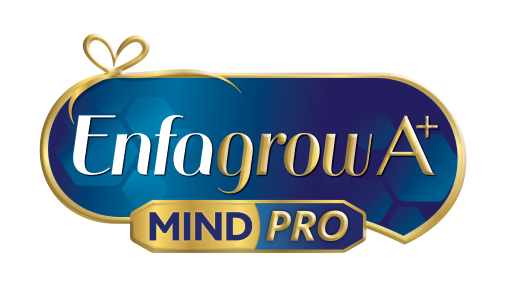
EQ & IQ: How to build in your Child
It is widely recognised that developing children's emotional intelligence, popularly known as EQ, is as important as developing their IQ or intelligence quotient. That's because EQ has a profound impact on children's future success and achievements, like IQ does. Sound social-emotional skills are required for successful and meaningful relationships at various stages in life from childhood through adulthood.1 This inter-relationship skill translates to the ability to adapt well in school, work effectively with others and be a contributing member of society.1
Emotional development largely covers the understanding of one's own emotions and that of others, self-regulation of behaviour and developing as well as keeping relationships.1
Nutrition plays a big role in your child’s mental and emotional development. Nutrients such as DHA and MFGM assists in your child’s development.
Nutrition to help support better emotional & behavioral regulation

Experts have already established that the early years of a child's life is critical. This is the period when brain development is very active. Multitudes of nerve cell connections in the brain are developed with more than 60 million new ones formed each minute!2 The connections allow ultra rapid communication among nerve cells that conduct specific functions in various areas of the brain such as information processing, emotions modulation, learning and memory formation.2,3 These connections form what is called the architecture of the brain. Genetic disposition together with experiences help build brain architecture.2
As already known, this early skills and capacity building during childhood will come to fruition due to their far-reaching impact on success in the adult years.2
This scientific breakthrough is good news for moms and kids as formulation research has kept abreast with this scientific development. With MFGM supplementing proper nutrition, along with the playtime, lessons, and guidance you give your child every day, you can help make sure he's well equipped for the future.
References:
- National Scientific Council on the Developing Child, Center on the Developing Child at Harvard University. Children’s emotional development Is built into the architecture of their brains: working paper no. 2. Available at http://developingchild.harvard.edu/wp-content/uploads/2004/04/Childrens-.... Accessed on 10 July 2017.
- Center on the Developing Child at Harvard University. Brain Architecture. Available at http://developingchild.harvard.edu/science/key-concepts/brain-architecture/. Accessed on 10 July 2017.
- Perese EF. Psychiatric Advanced Practice Nursing: A Biopsychosocial Foundation for Practice. 2012. E. A. Davis Company. 1st ed. Pp. 69.
- Veereman-Wauters G, Staelens S, Rombaut R, et al. Milk fat globule membrane (INPULSE) enriched formula milk decreases febrile episodes and may improve behavioral regulation in young children. Nutrition 2012;28(7):749-52.
- El-Loly M. Composition, Properties and Nutritional Aspects of Milk Fat Globule Membrane – a Review. Pol. J. Food Nutr. Sci. 2011; 61(1),7-32.
- Küllenberg D et al. Health effects of dietary phospholipids. Lipids in Health and Disease. 2012; 11(3),1-16.
- Banjari I et al. Brain food: how nutrition alters our mood and behavior. Hrana u zdravlju i bolesti, znanstveno-stručni časopis za nutricionizam i dijetetiku, 2014; 3(1),13-21.

